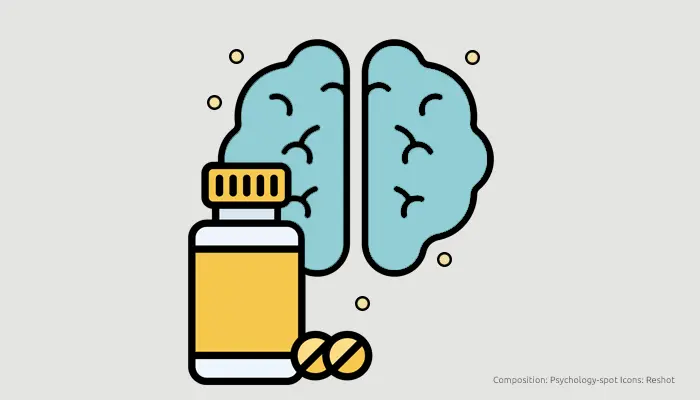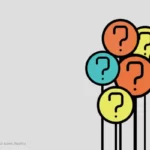
Homeopathy for anxiety and stress is considered an alternative treatment that can be used in addition to psychological therapy. This treatment has been used for more than two centuries and has loyal followers since it is a natural therapy, but it also has staunch detractors.
How do homeopathic remedies for anxiety work?
Homeopathy is based on a mixture of herbs, minerals, and other natural products to relieve anxiety symptoms. These substances are usually highly diluted, so they do not usually cause side effects since their levels do not become toxic. However, it is precisely this low concentration that questions the effectiveness of homeopathy for anxiety, stress or any other disorder since many consider that there is not an active ingredient in sufficient quantity to cause real changes.
However, homeopathy is based on other principles that do not coincide with the vision of traditional medicine. Homeopathic medicines for anxiety try to make the body self-regulate, so that the person can gradually change their attitude. In practice, by reestablishing the affective balance, the person will be able to have more positive thoughts and find the calm that helps him fight anxiety and stress.
What is the best homeopathic medicine for anxiety?
It is difficult to determine which is the best homeopathic medicine for anxiety or stress. The British Homeopathy Association and the National Center for Homeopathy in the United States recommend the use of the following homeopathic remedies for anxiety:
1. Arsenicum Album. This homeopathic remedy for anxiety and stress is recommended when the person suffers from panic attacks. It is used by people who see the world as a hostile and threatening site, so they respond with compensatory behaviors aimed at regaining control. It is also used with those who believe that they have a physical illness due to their symptoms, but in reality suffer from anxiety or stress. The psychological situation is marked by fear, an overwhelming feeling that everything will go wrong and hopelessness for his recovery.
2. Ignatia Amara. This homeopathic medicine for anxiety is often recommended when the person has been in shock or has post-traumatic stress disorder. It is good for dealing with life distress and highly stressful situations. The psychological situation can be characterized by emotional ups and downs with continuous mood swings and a tendency to hostility. It is also used to fight insomnia caused by anxiety or the sensation of having something trapped in the throat, muscle contractions and emotional headache, common problems in those who suffer from anxiety.
3. Natrium Muriaticum. It is one of the most widely used homeopathic medicines for stress and anxiety. It is used when the person feels isolated from the world, experiences a sense of derealization due to the emotional barrier that has been built. It is also recommended for those who suffer anxiety due to their high sense of duty, which is why they tend to overload themselves with tasks and duties. In fact, it is also used to treat fatigue and extreme tiredness.
4. Aconitum. This homeopathic remedy is recommended for acute situations, such as when is experienced a sudden fear that quickly invades the person. It can be an intense fear or a strong feeling that causes an emotional imbalance, often generating an anxiety crisis. It is also used in those who remain in a state of high alert. In fact, it is recommended for restless, nervous, impatient people who live as if they are always in danger.
5. Calcarea Carbonica Ostrearum. This homeopathic medicine is usually applied when the person has anxiety and feels an intense need for stability and protection. It is recommended for those who feel very anxious to leave things undone or when things do not go as planned. It is also used with those who have obsessive traits, such as those who are obsessed with cleanliness, those who are in dire need of order, or fear germs.
6. Gelsemium. This homeopathic medicine for anxiety is famous for its sedative, anxiolytic, and pain-relieving properties. In fact, it is hypothesized that it acts by regulating the secretion of allopregnanolone, a hormone synthesized by the nervous system that has an effect similar to benzodiazepines. It is used primarily with apprehensive and shy people, who feel that they do not have the psychological resources to do what they would like to do, so they often respond by freezing or going blank. It is also used in situations of vertigo, weakness, tremors, drowsiness and fainting due to anxiety.
7. Pulsatilla. This homeopathic medicine for anxiety is recommended for highly sensitive people. It is often used with those who establish very strong bonds of attachment with others and experience anxiety due to this dependent relationship. In fact, in many cases their anxiety comes from fear of losing that person or being rejected. It is also used to help people find calm on their own, rather than continually depending on others.
Homeopathy for anxiety: an effective remedy?
Some psychologists turn to homeopathy as a plus to psychotherapy to speed up the healing process. However, it is not usually the only treatment recommended since there are doubts about its effectiveness when used as the only therapeutic alternative.
In fact, we must remember that anxiety and stress are not only due to external factors, but in many cases are fueled by our emotional responses, thought patterns, and coping styles.
A study published in the journal Homeopathy, for example, revealed that pulsatilla is useful to calm anxiety, equating its effects with a widely used anxiety medication, diazepam. However, this research was carried out in mice, so there are no data on the effect of pusatilla in humans.
Researchers from the University of Westminster performed a meta-analysis on the effects of homeopathy on anxiety. They noted that several studies, mainly observational, indicated high levels of patient satisfaction. However, they also said that, given the absence of a control group, it was difficult to accurately assess the degree of efficacy of homeopathy. Therefore, they concluded that “The evidence on the benefit of homeopathy in anxiety is limited.”
One of the most reliable experiments on the effects of homeopathy on anxiety was conducted at the Hadassah Medical Center. This was a double blind investigation with a group of control. These psychologists concluded that homeopathy can improve anxiety symptoms. However, it was not more effective than the placebo they used.
Based on the evidence so far, we can conclude that both homeopathic drops for anxiety and homeopathic pills for anxiety are as effective as any placebo. Therefore, if the person believes in its beneficial action, they can really be good. If not, they’re probably useless.
If you are looking for natural remedies to help you complement psychological therapy or perhaps you are on a path of personal growth that you have embarked on on your own, it may be more effective the use of essential oils for anxiety. Also the calming effect of valerian, passionflower and lavender for anxiety have been scientifically proven.
Sources:
Lakshmipathy, R. et. Al. (2017) Anxiolytic effect of homeopathic preparation of Pulsatilla nigricans in Swiss albino mice. Homeopathy; 101(3): 171-174.
Pilkington, K. et. Al. (2006) Homeopathy for anxiety and anxiety disorders: A systematic review of the research. Homeopathy; 95(3): 151-162.
Bonne, O. et. Al. (2003) A Randomized, Double-Blind, Placebo-Controlled Study of Classical Homeopathy in Generalized Anxiety Disorder. J Clin Psychiatry; 64(3): 282-287.
Worden, J. (s/f) A homeopathic guide to anxiety and depression. In: British Homeopatic Association.
(s/f) Anxiety or Fear. In: National Center for Homeopaty.



